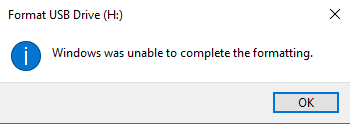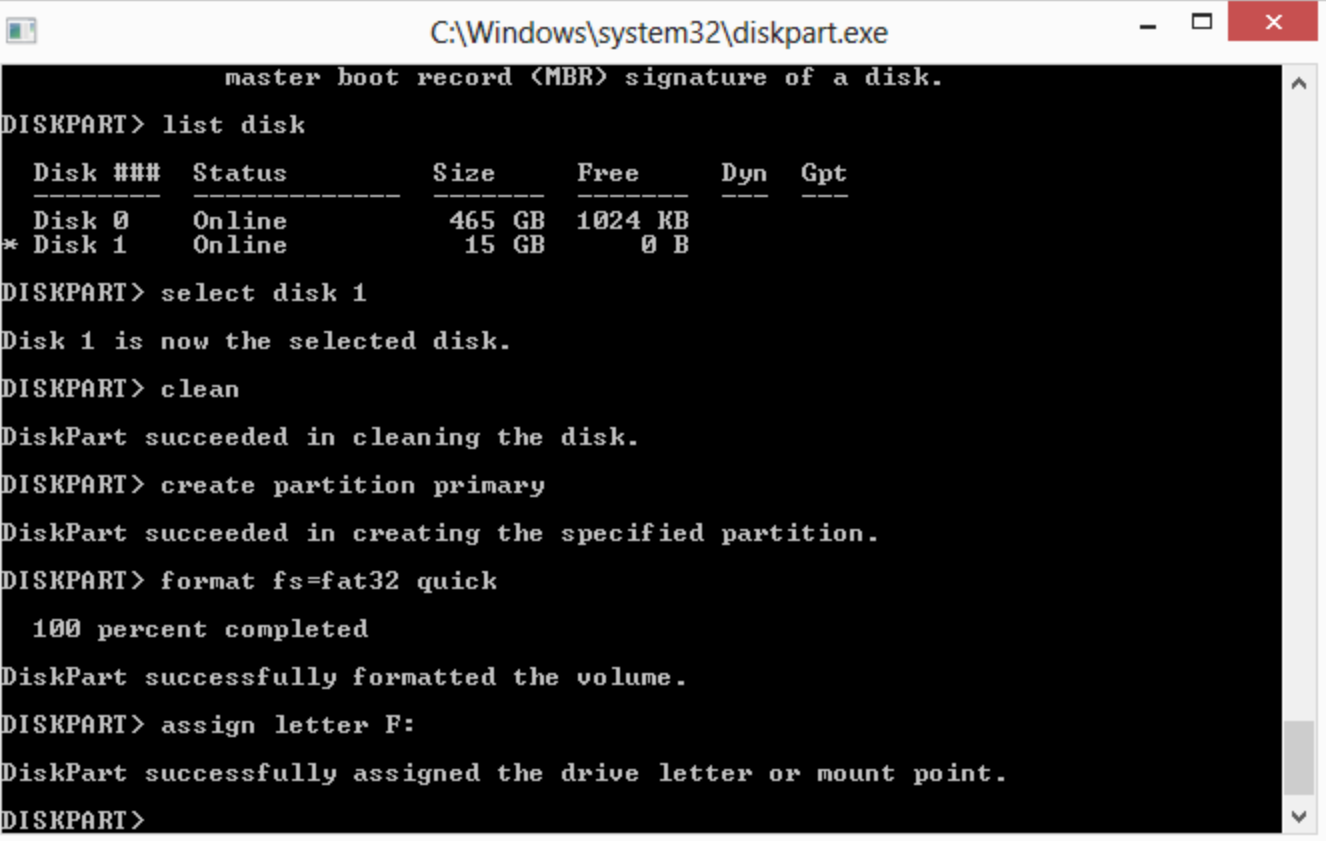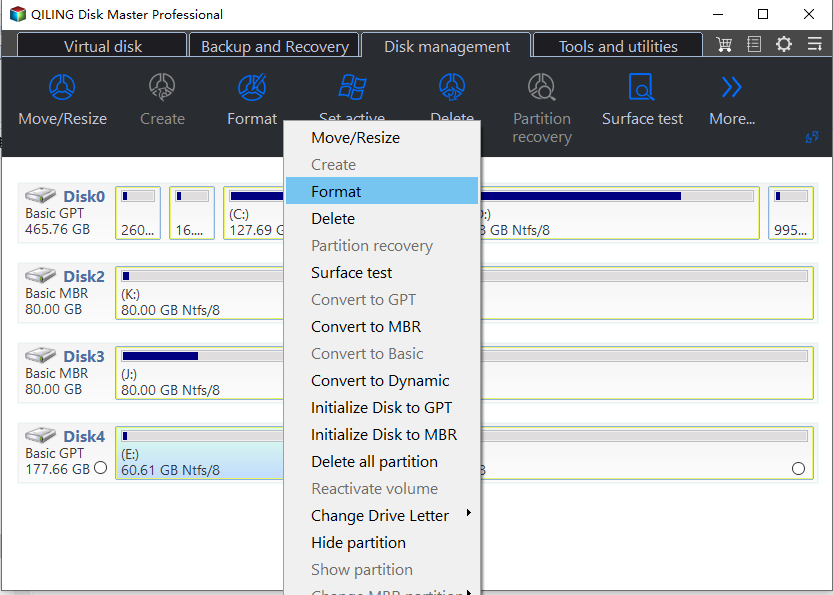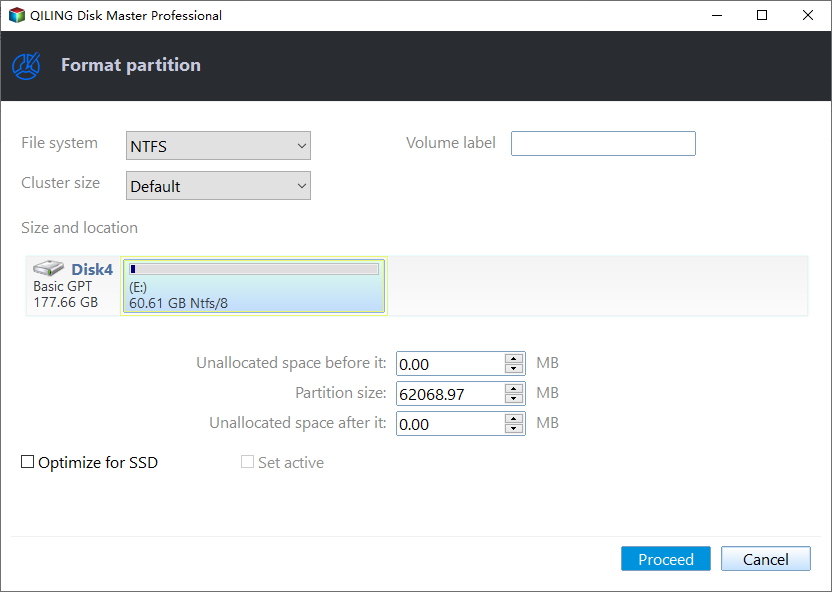How Do You Fix External Hard Drive Won't Format in Windows 11/10/8/7?
"My external hard drive won't format"
Your 1TB Seagate external hard drive is showing up as RAW, which means Windows can't read or write to it. The format issue is likely due to a corrupted or incomplete format process. Try booting from a Windows installation media, then run the built-in disk management tool to see if you can create a new partition or format the drive. If that doesn't work, you may need to try a third-party formatting tool or contact Seagate support for further assistance. Would you like me to provide more details on these steps?
Users may encounter an error when trying to format an external hard drive or other storage device, resulting in a message stating that the format was not completed successfully or that Windows was unable to complete the format.
Why is an external hard drive not formatting?
External hard drives may fail to format due to various reasons, including software conflicts, hardware issues, or corrupted file systems. The drive may also be locked or in use by another program, preventing the formatting process.
• Malware or virus infection
• Bad sectors
• Missing or damaged DLL, SYS, or EXE files
• Damaged hard drive partition
• Disk write protection
• Incorrect drive format
• Incompatible or outdated hardware drivers or BIOS, etc.
If you're encountering issues with formatting an external hard drive, you may receive notices such as:
◤ Disk is not formatted
◤ You must format the disk in drive F: before you can use it
◤ This volume does not include a recognized file system
When encountering issues with a hard drive, many people turn to the CHKDSK tool to resolve the problem. However, running chkdsk may result in the error message "CHKDSK reports RAW," which can be frustrating and confusing.
If you're experiencing issues with your Seagate, WD, or other brands' external hard drive not being formatted, don't worry! Fortunately, there are alternative solutions to this problem.
How do I fix my external hard drive that won't format?
Now, let's see how to resolve "cannot format external hard drive" with CMD commands and a professional third-party tool.
Method 1. Force format external hard drive with CMD
Step 1. Connect the external hard drive (HDD/SSD, USB drive, or other devices) that you need to format to your PC.
Step 2. Press "Win + R" to open the "Run" dialog, type "cmd", and hit "Enter" to open Command Prompt as Administrator.
Step 3. Now, you need to type the following commands one by one, and press "Enter" after each. And make sure you type the correct orders and select the target disk because the operations cannot undo once it's been executed.
• diskpart
• list disk (display all disks on your computer)
• select disk 1 (1 is the drive number of the target disk)
• clean (This order will erase all data on the disk)
• create partition primary
• format fs=fat32 quick or format fs=ntfs quick
• assign letter F: The new policy aims to reduce the number of F- students in the upcoming semester by providing additional support to those who are struggling. The policy will offer extra tutoring sessions, academic advising, and other resources to help students who are at risk of failing.
To finish the process, type: exit and hit Enter.
Method 2. Force format external hard drive with free partition manager
If you're unable to format an external hard drive using the Command Prompt (CMD), you may want to try a free partition manager called Qiling Disk Master Standard. This tool offers fewer limitations compared to Windows' built-in formatting tools and provides additional advantages.
★ Unfortunately, it's not possible to format a hard drive larger than 32GB to the FAT32 file system. FAT32 has a maximum partition size limit of 32GB, so attempting to format a larger drive to FAT32 will result in an error.
★ Format hard drive to Ext4/Ext3/Ext2 under Windows environment;
★ Format internal hard drive to exFAT with ease;
★ Force format RAW, write-protected, encrypted, or corrupted hard drive successfully.
If you're experiencing issues with formatting an external hard drive to FAT32 or NTFS, you can try using Qiling Disk Master Standard, a free tool that allows you to force format the drive within just 3 steps.
Step 1. Install and run Qiling Disk Master on your Windows PC, where you'll see all disks, including the unable to format external hard drive, marked as "Unformatted". Right-click on it and select "Format Partition" to proceed.
Step 2. After selecting the partition, it will pop up the Format partition window where you can set up the details, such as choosing a file system from the list.
Step 3. Finally, click "Proceed" to execute the whole progress.
If the three steps fail to format your external hard drive, you can try using the Wipe Hard Drive feature in Qiling Disk Master to help resolve the issue.
To sum up
Qiling Disk Master is a great format tool that can easily resolve the issue of an external hard drive not formatting. Additionally, it offers features such as checking bad sectors, testing disks, and more.
Upgrading to Qiling Disk Master Professional offers advanced features such as cloning an MBR disk to GPT without data loss, recovering lost files, allocating free space from C to D drive, and converting disk between MBR and GPT without deleting volumes.




